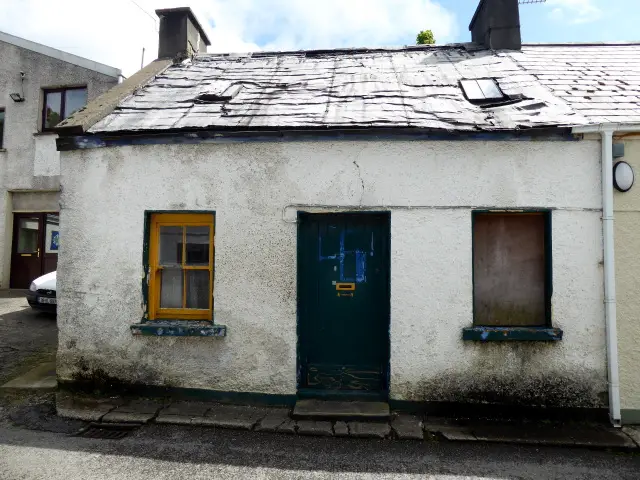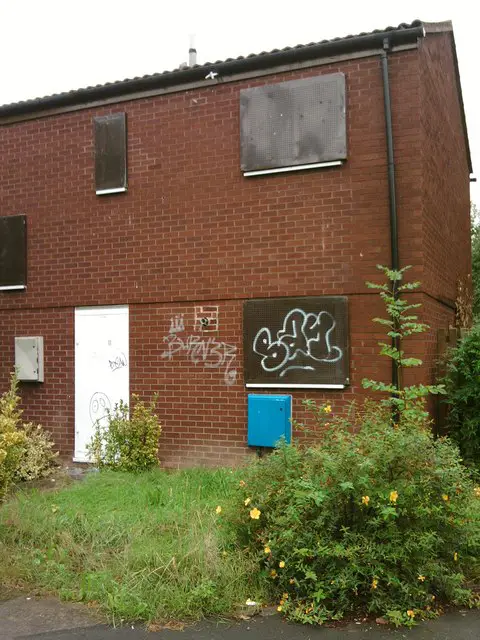
How to Avoid Business Rates on Empty Properties
With commercial property vacancies at a four-year high—one in every ten UK stores is now vacant—local governments earn more than £1 billion in empty property business rates each year.
If you own commercial property, you may be wondering if there are ways to avoid paying this steep fee.
What are Business Rates on Empty Properties?
Most commercial property owners are subject to empty property business rates under the Rating (Empty Properties) Act of 2007 after only three months of their building becoming unoccupied.
These are levied on any occupiable non-domestic property, including stores, offices, and industrial structures.
However, if you own an empty commercial property, you may be eligible for reduction or possibly be excluded from paying business rates entirely. Beyond just appealing the rateable value of our facility, there are several strategies to avoid paying empty property business rates or decrease your obligation.
Extension Period
It is also worth noting that changes in ownership will not result in a new term of exemption, as the exemption only applies to the property itself.
Finding renters ready to use the property for at least 6 weeks is one of the most prevalent methods of avoiding paying business rates on vacant buildings. Once rented or inhabited, the renter is responsible for paying the business rates.
Your rates exemption term is extended once their lease expires and the property is left unoccupied. The procedure can be performed several times. In most circumstances, a reverse payable premium is considered, which helps to minimize the tenant’s responsibility.
Short-term occupation (less than six weeks), such as that of a renter or licensee, will be ignored, implying that business rates will continue to be charged at that time. This bans owners from taking advantage of additional periods of exemption for inconsequential lettings.

When you rent out your property for more than six weeks, your rates exemption is withdrawn, but you can claim another three months of exemption when it becomes vacant again.
It must be demonstrated that the property occupation benefits the renter and has some degree of stability. Finding temporary renters is another major issue with this strategy.
In rare instances, the landlord may function as a temporary renter. The landlord must occupy the land for at least 6 weeks under this technique. When the landlord is on vacation, he or she might apply for a new rate exemption term.
This method can also be used repeatedly. The landlord, like the short-term renter, must demonstrate that the property occupation is advantageous to them.
Legal Exemptions
If you own any of the following categories of property in England, regardless of whether it is unoccupied or not, you are free from paying business rates:
- Fish farms, agricultural structures, and constructions primarily used for agricultural purposes.
- Property utilized for handicapped people’s training or wellbeing.
- Real estate registered for religious reasons.
- Non-exempt properties that have gone vacant
- Industrial properties are excluded for an additional three months.
- Listed structures are free from business rates until they are reoccupied.
- Properties with a rateable value of less than £2,900 are free from business rates until reoccupied.
- Buildings held by registered charities are free from business rates as long as their future use is charitable.
- Community amateur sports club facilities are completely free from business rates as long as they are used for that purpose.
When a small business occupies a property with a rateable value of less than £18,000 (£25,500 in Greater London), the firm may be eligible to a 50% reduction on its rates costs.
Property Guardians
Using property guardians is one of the most successful ways of obtaining business rate reduction. This is where individuals dwell temporarily in an empty property to keep it under surveillance and in excellent shape.
Property guardians provide 24-hour protection at a fraction of the expense of static security guards, and they can prohibit squatters from inhabiting your building, keep it from decaying, and keep it from being a fly-tipping target.
Because the property is temporarily residential, the owners pay council tax, which is substantially less expensive, saving landlords up to 90% on business rates.
Furthermore, because this arrangement is transitory, it does not represent a change of use, and it is advised by the regulator and councils as a legal way to reduce business rates on unoccupied property.
Beneficial Occupancy

In the view of tax collectors, if your building is destroyed by a flood, fire, or explosion, it is no longer suitable for use. The precise name for this is “beneficial occupancy” or “beneficial occupation,” and properties that do not match this requirement will be removed totally from the rating list.
However, the consequences must be serious, and your home must require renovation rather than simply being in ruin. As a result, minor renovations would not be considered significant enough to qualify your property for business rate exemption, though you may be able to secure temporary relief. Once the rebuilding work begins, your home will be removed from the rating list.
Some ratepayers may even engage in “constructive vandalism,” such as purposefully destroying partitions or suspending lighting, in order to buttress their position that the property is incapable of useful occupation and that repairing the damage would be uneconomic.
If you do it yourself, you must weigh the possible savings in business rates against the expense of damage, especially if you want to rent or occupy the property in the future.
If your building is being demolished or redeveloped, it may be free from business rates. It’s vital to know that the Valuation Office Agency (VOA) will investigate to make sure you’re not using redevelopment to avoid paying taxes, so it must be a valid reason.
Letting to Charities or Organizations
Another useful move you may take is to donate your property to charity. It should be noted that recognized charities are only required to pay 20% of the total business rates.
Commercial properties occupied by a charity are eligible for an 80% business rate discount, which can be raised by the local Billing Authority by up to 100%. This is likewise true if you lease property to an educational or religious institution.
Certain property is “zero-rated” when it is vacant and the property owner is:
- A nonprofit organization, and it appears that when the property is re-occupied, it will be utilized entirely or mostly for philanthropic purposes (whether of that charity or that of other charities).
- A community amateur sports club (CASC), when it seems that the property will be utilized entirely or mostly for the purposes of that CASC when it is re-occupied (or for the purposes of that and another CASC).
- Derelict Cottages For Sale
- Abandoned Houses for Sale in the UK
- Abandoned Property: How Long Before A Property Is Considered Abandoned?
